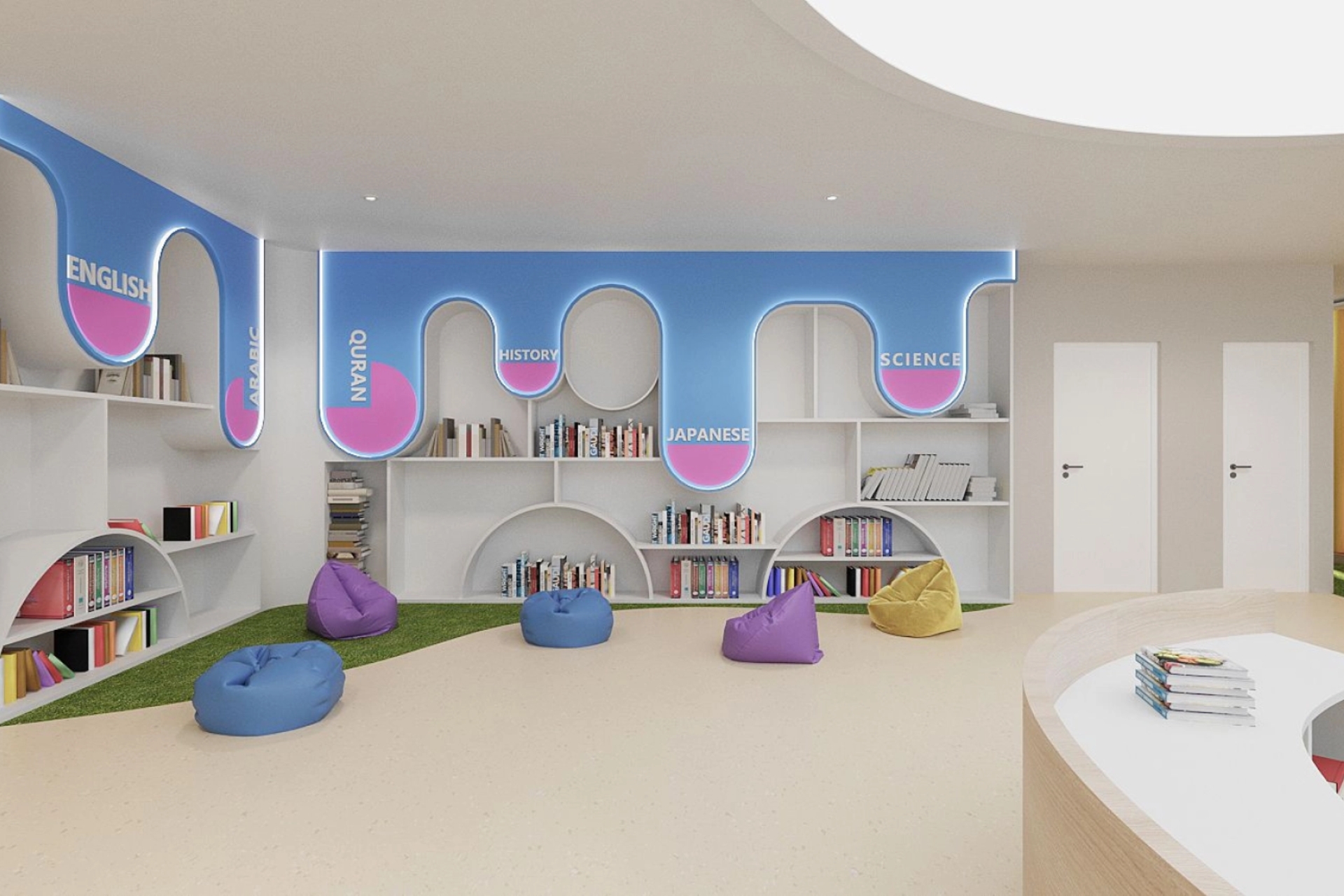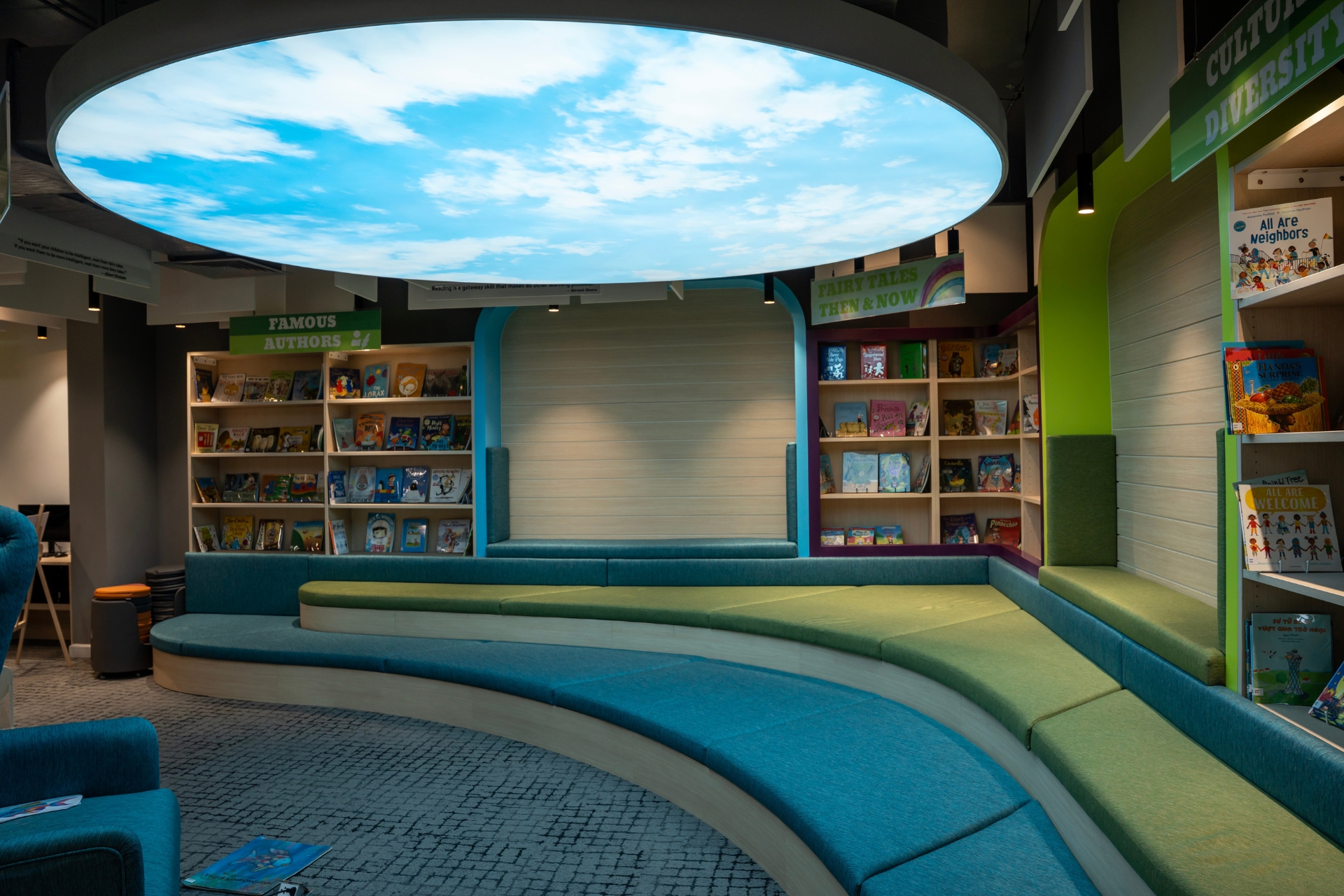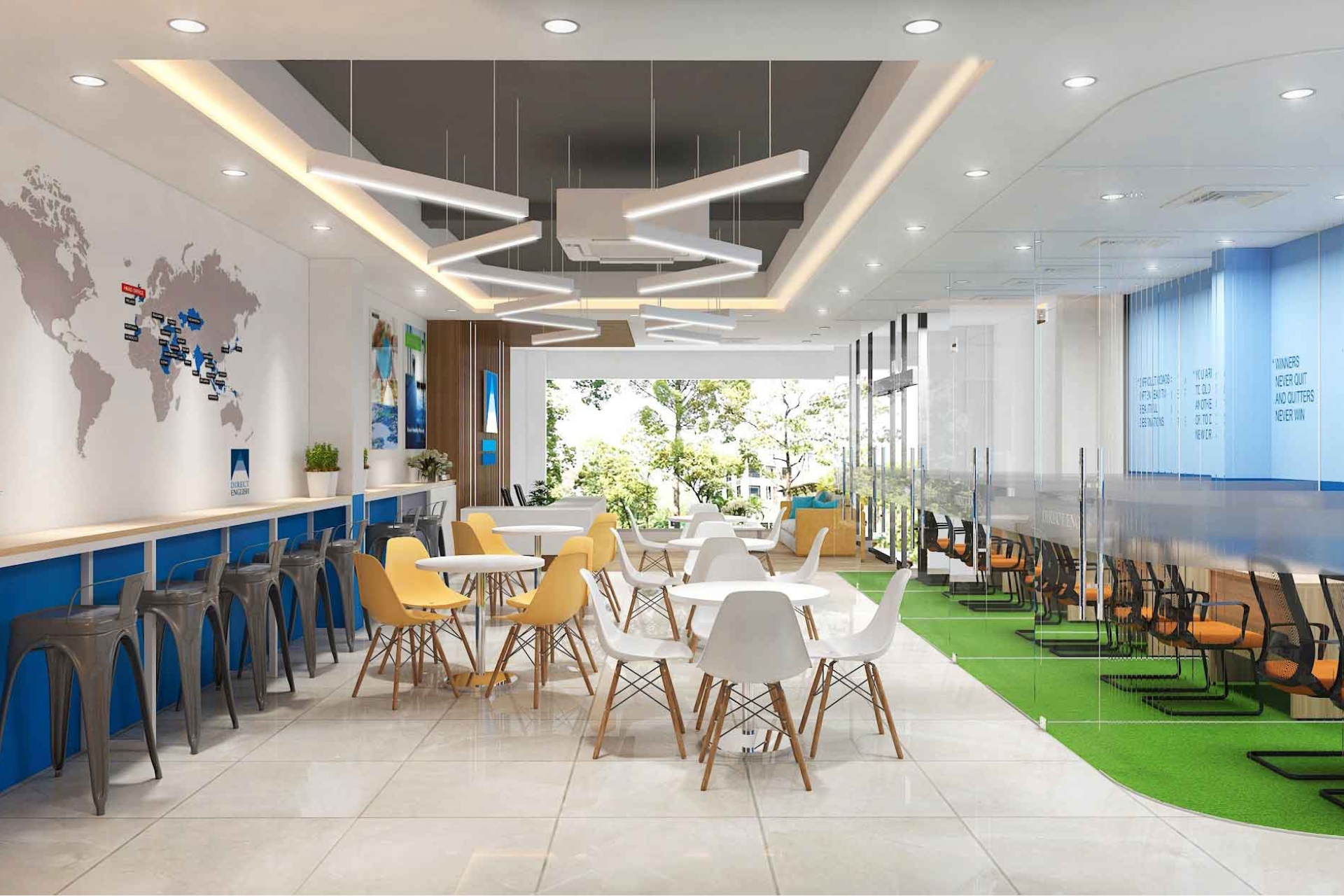
The Secret to a Friendly and Creative English Center Design
In the modern era of education, an English language center is no longer just a space for teaching and learning. It has become an inspirational tool—a place that reflects educational philosophy, brand values, and the ability to retain students. For English centers, especially those with long-term development goals, designing classrooms to be friendly, stimulating, and inspiring is no longer optional—it’s essential. Below, TECO shares key principles for designing a welcoming and creative English language center.
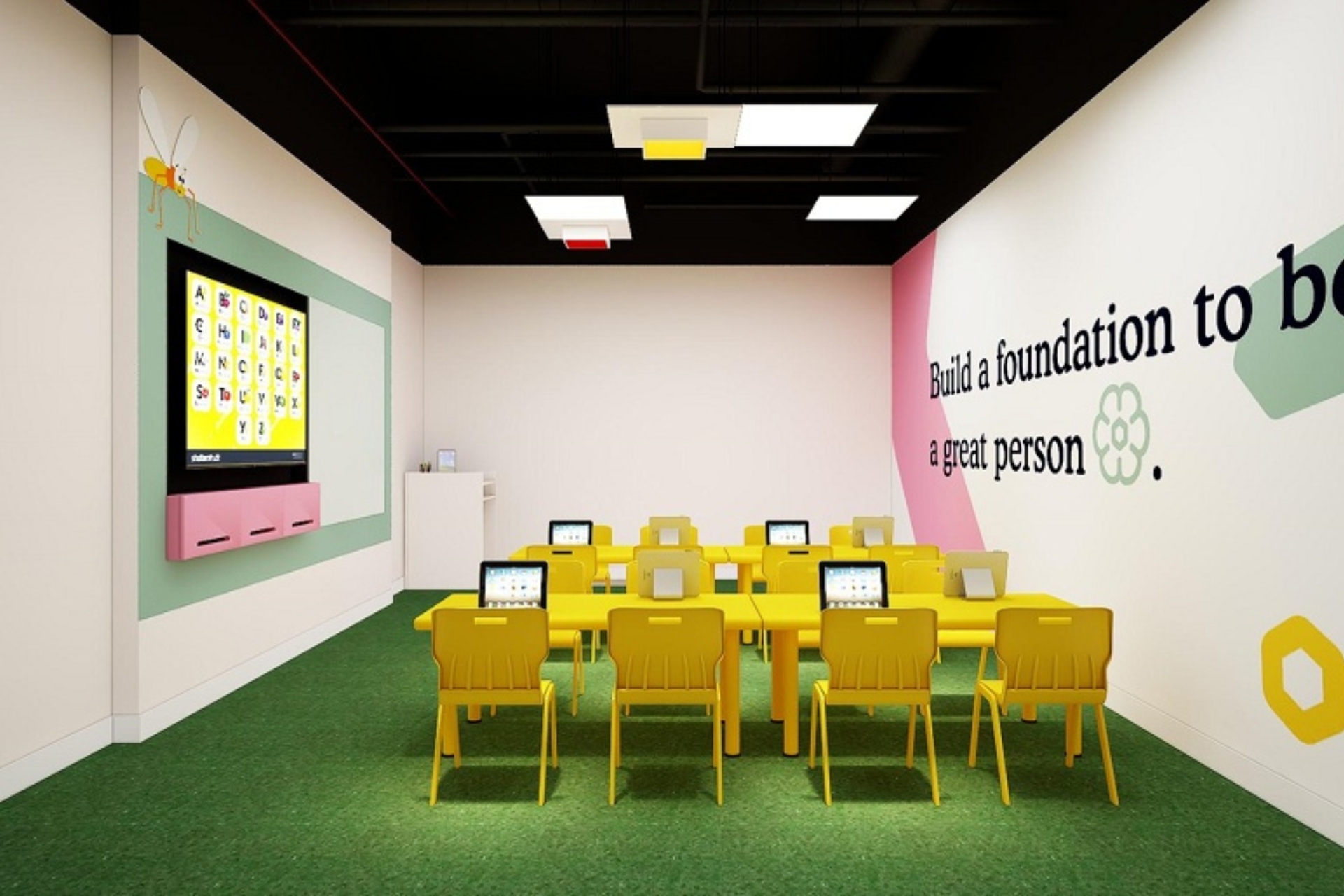
Some key principles for designing a friendly and creative English center.
1. Align Design with the Center’s Educational Philosophy
Every English center has its own educational philosophy: some emphasize critical thinking, others prioritize active communication, or encourage limitless creativity. The learning space must “speak” this philosophy—without needing an introduction.
A center fostering children’s independence needs open spaces that encourage movement, letting students choose their study corners and arrange materials freely. A center focused on interaction should prioritize group tables, writable walls, and presentation zones for debates.
The space is a silent yet powerful medium for conveying educational philosophy—it must subtly highlight the brand’s core values.

Space serves as a medium to convey the educational philosophy.
2. Infuse Brand Identity into the Learning Space
A common mistake many centers make is investing heavily in marketing while neglecting their physical space—resulting in a generic, unrecognizable environment. Yet, the classroom is where students and parents engage most frequently.
Brand identity isn’t just about logos on walls. It’s reflected in color schemes (aligned with brand colors), furniture styles, illustrative visuals, and motivational wall art. These elements should connect students emotionally to the center.
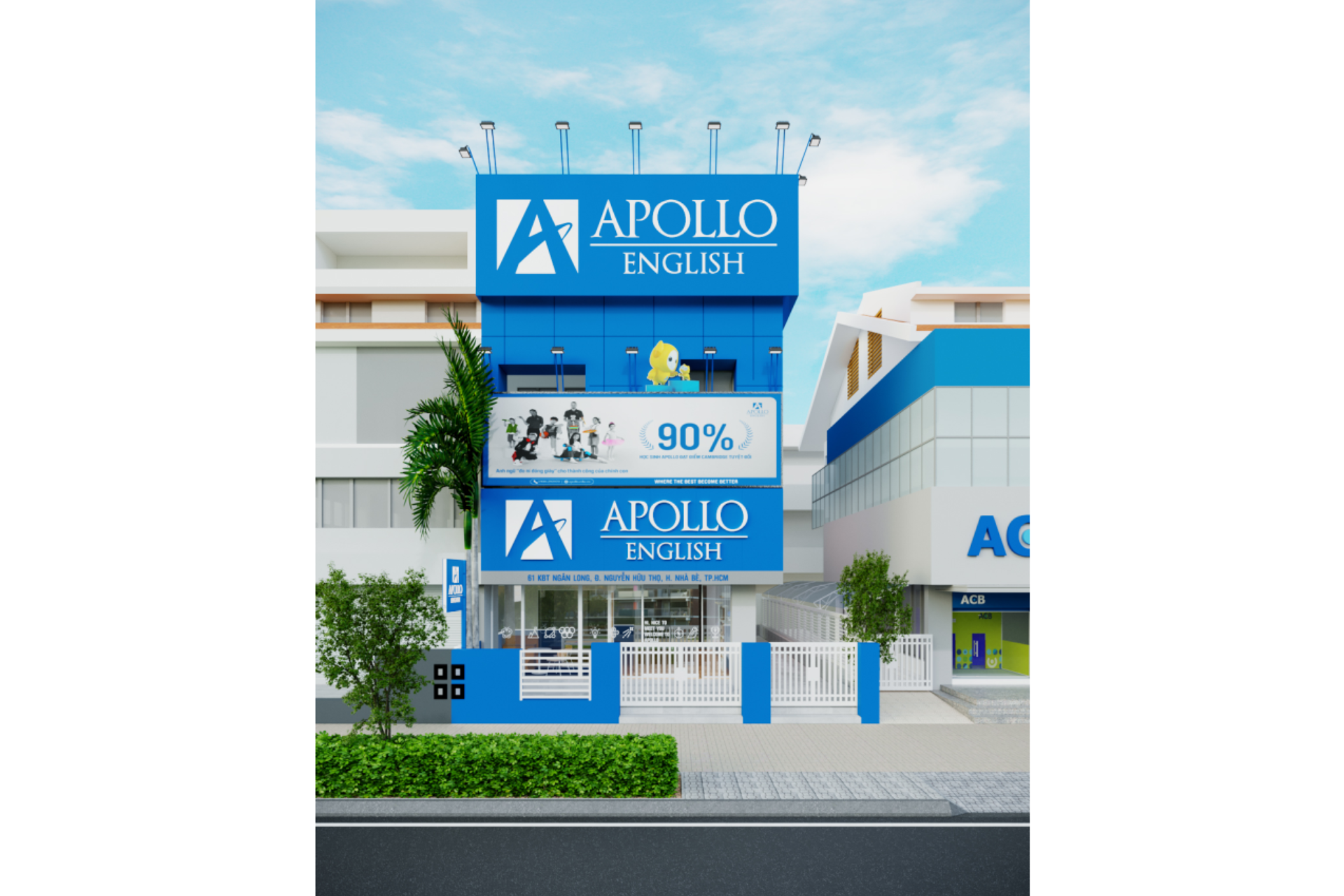
Apollo English uses blue and white as its signature colors.
3. Safety—The Foundation of Creativity
A safe environment prevents slips, collisions, and injuries:
-
Anti-slip, easy-to-clean flooring
-
Rounded edges on desks, shelves, and door handles
-
Non-toxic materials (paint, wood, plastic)
-
Hidden electrical wiring with child-safe socket covers
When students feel secure, they freely explore, experiment, and express themselves—unhindered by fear of accidents. This is where creativity thrives.
4. Spark Imagination with “Talking Walls”
Replace blank walls or rigid posters with interactive, inspiring displays:
-
Student photo corners showcasing achievements, field trips, and birthdays
-
Art walls with motivational English quotes
-
“English Corner” featuring world maps, country flags, and cultural symbols
These “talking walls” don’t just beautify the space—they ignite curiosity, encourage interaction, and make students feel a sense of belonging.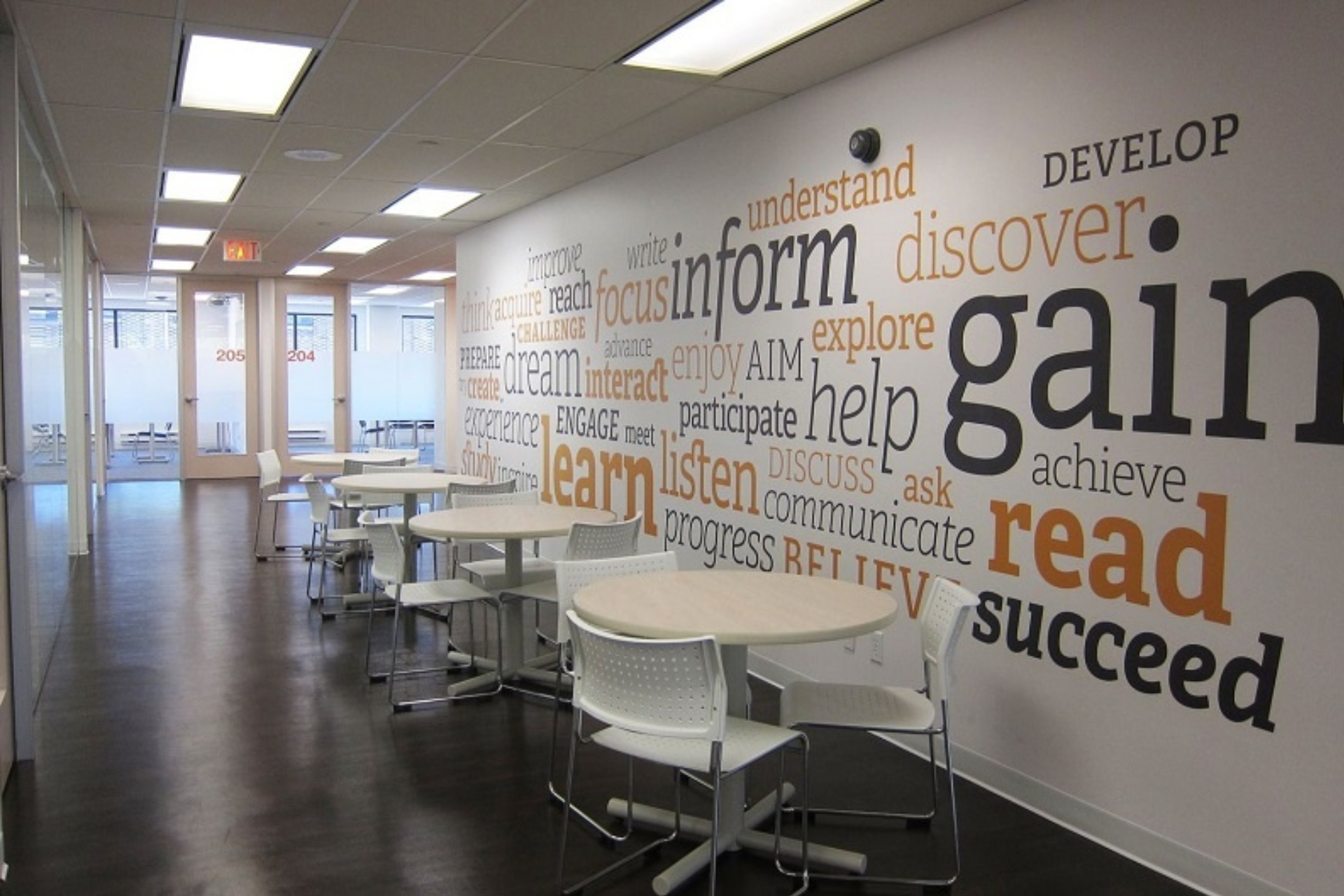
Walls are creatively decorated to inspire and motivate students to learn English.
5. Color Psychology: How Hues Influence Emotion & Creativity
Colors directly impact emotions and learning behaviors—a fact backed by environmental psychology research. When designing an English classroom, color choices should align with age groups and educational goals:
-
Green: Enhances focus (ideal for grammar/writing classes)
-
Soft yellow: Boosts creativity (great for communication/presentation rooms)
-
Blue: Promotes calmness (suited for exam prep)
-
Orange/light red: Energizes (use as accents, not dominant colors)
Pair colors with natural light and neutral-temperature LEDs (4000–5000K) to reduce eye strain and improve retention.
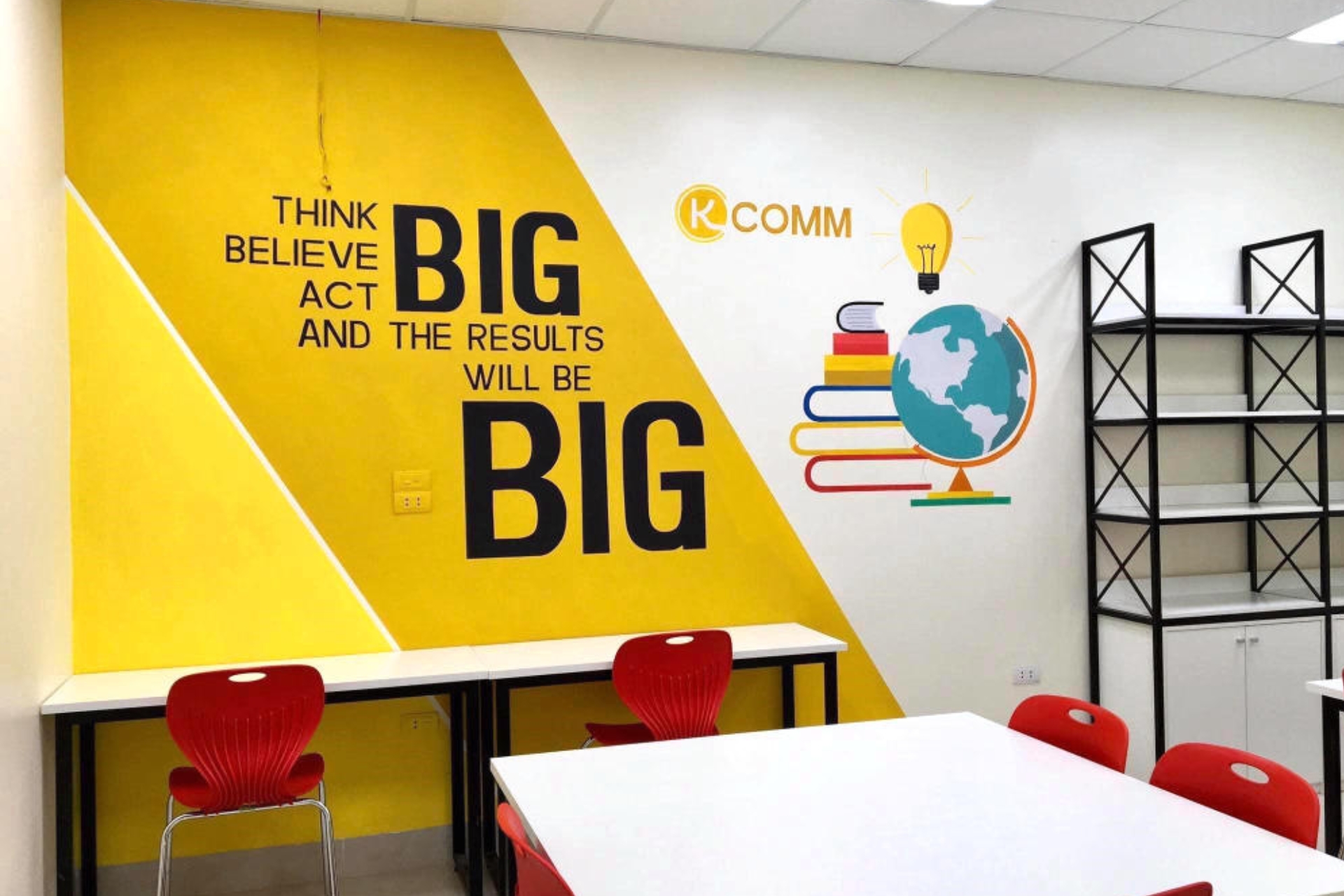
The color yellow stimulates creativity and sparks ideas in learners.
Conclusion
Designing a friendly and creative English center isn’t just about aesthetics—it’s a sustainable growth strategy. A well-designed space not only makes learning enjoyable but also builds parental trust and strengthens brand reputation. TECO hopes this article provides actionable ideas for creating an inspiring learning environment.


